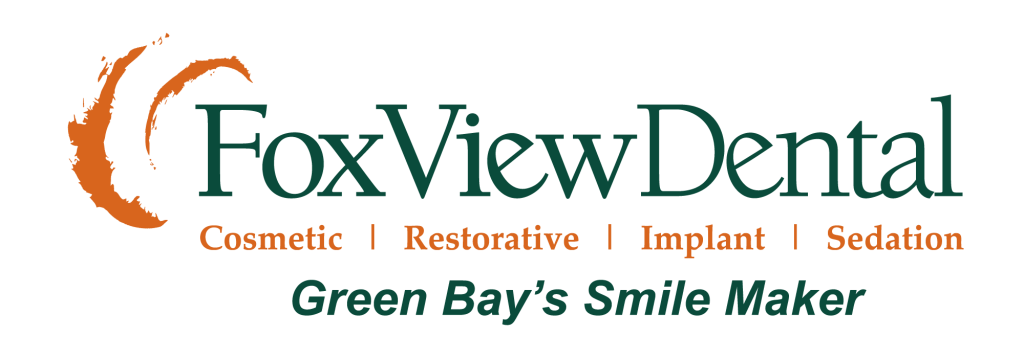Effective Solutions for Better Sleep and Health
Do you wake up every morning feeling exhausted, struggling to concentrate throughout the day, and experiencing constant irritability? These symptoms could be more than just a lack of quality sleep—they could be signs of obstructive sleep apnea (OSA).
At Fox View Dental, Dr. Chad Yenchesky helps patients from De Pere, Green Bay, Allouez, Howard, and Ashwaubenon find effective treatment for obstructive sleep apnea. If you’re struggling with OSA or you’re unsure if you have a sleep disorder, contact our dental office near Green Bayby calling (920) 336-4201to schedule an evaluation.
Why Choose Fox View Dental for OSA Treatment?
Dr. Chad Yenchesky brings nearly 15 years of experience and specialized training in dental sleep medicine to every patient consultation. As a faculty member of the Clinical Mastery Series and an active participant in national continuing education programs, Dr. Chad stays at the forefront of sleep apnea treatment advances.
Patients appreciate his down-to-earth demeanor, relentless pursuit of perfection, and genuine commitment to improving their health and quality of life. At Fox View Dental, located conveniently in De Pere, you’ll receive personalized care in a welcoming environment where the entire team shares Dr. Chad’s passion for excellence.
What Is Obstructive Sleep Apnea Syndrome?
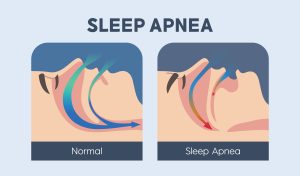
Having obstructive sleep apnea properly diagnosed is crucial for appropriate treatment and long-term health management. Dr. Yenchesky, with his advanced training through Dr. Steven Olmos’s TMJ & Sleep Therapy Research program, understands the complexities of OSA and can help you find the right treatment approach.
How OSA Impacts Your Health
Ignoring obstructive sleep apnea can result in serious health implications. The most common risks include:
- Heightened risk of cardiovascular disease
- High blood pressure (hypertension)
- Stroke
- Type 2 diabetes
- Cognitive impairment and memory problems
- Increased risk of accidents stemming from excessive daytime sleepiness
For residents commuting from De Pere to Green Bay or Appleton for work, the daytime drowsiness caused by OSA creates dangerous situations on Highway 41 and Interstate 43.
Recognizing OSA Symptoms
Symptoms of obstructive sleep apnea manifest differently during nighttime and daytime hours.
Nighttime Symptoms

- Chronic and/or loud snoring
- Gasping or choking sounds during sleep
- Witnessed pauses in breathing
- Restless sleep with frequent position changes
- Night sweats
- Frequent awakening to use the bathroom
These symptoms disrupt not only your sleep but often your partner’s rest as well. If you or your bed partner notices any of these symptoms, seek evaluation for proper diagnosis.
Daytime Symptoms
During the day, individuals with obstructive sleep apnea may experience:
- Excessive sleepiness, even after a full night in bed
- Morning headaches
- Irritability and mood swings
- Difficulty concentrating at work
- Depression or anxiety
- Decreased libido
These symptoms can significantly affect your quality of life, impacting work performance, relationships, and your ability to enjoy activities like attending Packers games or spending time outdoors in Brown County.
What Causes Obstructive Sleep Apnea?
Obstructive sleep apnea occurs when the muscles at the back of your throat relax too much during sleep, causing the airway to narrow or close. Several factors increase your risk:
- Obesity: Excess weight, particularly around the neck, is the most significant risk factor for OSA.
- Neck Circumference: A larger neck circumference (over 17 inches in men, over 16 inches in women) increases risk.
- Age and Gender: OSA is more common in middle-aged and older adults, and men face a higher risk than women.
- Family History: Genetics play a role—OSA tends to run in families.
- Lifestyle Factors: Smoking, alcohol use, and sedative medications all increase OSA risk.
- Anatomical Features: Large tonsils, a thick tongue, or a recessed jaw can contribute to airway obstruction.
- Medical Conditions: Conditions like hypothyroidism, GERD, and polycystic ovary syndrome increase OSA risk.
Diagnosing Obstructive Sleep Apnea
Sleep Studies
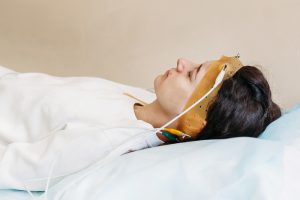
- Breathing patterns and interruptions
- Blood oxygen levels
- Heart rate and rhythm
- Sleep stages
- Body position
- Limb movements
After your sleep study confirms an OSA diagnosis, Dr. Yenchesky will review your results and discuss appropriate treatment options at our De Pere dental office.
Consultation and Evaluation
During your consultation at Fox View Dental, Dr. Yenchesky conducts a comprehensive evaluation that includes:
- Review of your medical history and symptoms
- Physical examination of your mouth, throat, and jaw structure
- Discussion of your sleep patterns and lifestyle factors
- Review of your sleep study results
- Explanation of treatment options suited to your specific case
Treatment Options for Obstructive Sleep Apnea
Oral Appliance Therapy
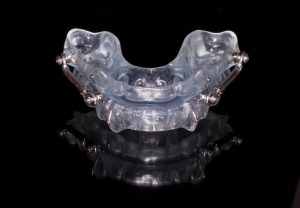
- Comfort: More comfortable than CPAP masks
- Quiet: Completely silent operation
- Portable: Easy to travel with
- Affordable: Often less expensive than CPAP equipment
With his extensive training and commitment to continuing education—averaging over 100 hours annually—Dr. Chad creates custom-fitted appliances that effectively treat OSA while remaining comfortable for nightly use.
CPAP Therapy
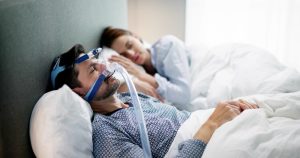
While highly effective, many patients struggle with CPAP compliance due to mask discomfort, noise, and portability challenges. Dr. Yenchesky can discuss whether oral appliance therapy might serve as a suitable alternative for your situation.
Lifestyle Modifications
Dr. Yenchesky—an avid outdoorsman who understands the importance of overall wellness—often recommends lifestyle changes to complement OSA treatment:
- Weight loss: Even modest weight reduction can significantly improve OSA severity
- Exercise: Regular physical activity strengthens throat muscles and aids weight management
- Sleep position: If you fall asleep on your side, you can reduce airway collapse compared to back-sleeping
- Avoid alcohol and sedatives: These substances relax throat muscles and worsen OSA
- Quit smoking: Smoking increases airway inflammation and fluid retention
Surgical Options
For severe cases unresponsive to other treatments, surgical interventions may be considered. These procedures aim to remove or reposition tissue that obstructs the airway. However, surgery is typically reserved as a last resort after other options have been exhausted.
